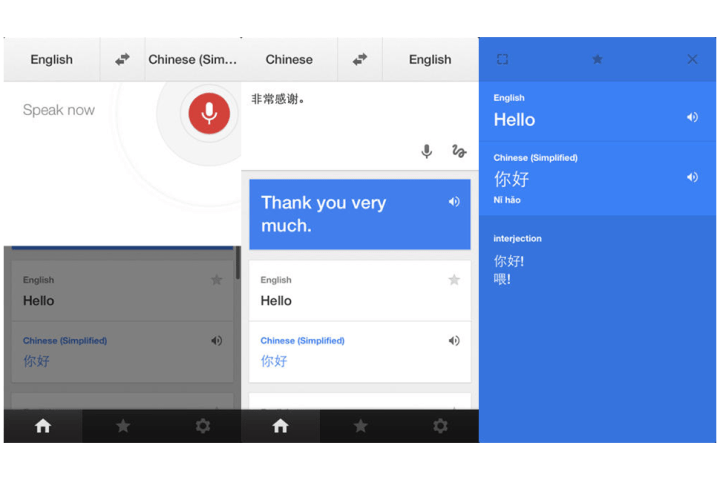
In a blog post celebrating its birthday, Google noted, “Ten years ago … our goal was to break language barriers and to make the world more accessible. Since then we’ve grown from supporting two languages to 103, and from hundreds of users to hundreds of millions.” And while turning 10 is a big milestone for anyone, Google Translate has lived a lifetime in a decade. “What we’re most inspired by is how Google Translate connects people in communities around the world, in ways we never could have imagined,” Google Translate’s product lead, Barak Turovsky, writes.
Today, over 500 million people use Google Translate to do everything from read an article in a foreign language to chat with individuals with different mother tongues. The most common translations, the company notes, are between English and Spanish, Arabic, Russian, Portuguese and Indonesian. Over 100 billion words are translated every single day.
Much of the success of Google Translate can be attributed to the vibrant, multicultural, and — most importantly — multilingual community that contributes to the ever growing database of words and languages. Thus far, 3.5 million people have made 90 million contributions. “By reviewing, validating and recommending translations, we’re able to improve the Google Translate on a daily basis,” Google says.
And while Google is proud of the many features that already exist in Translate — everything from Word Lens to offline capabilities to bilingual conversations translation — they’re not done yet. “We’re excited and proud of what we’ve accomplished together over the last 10 years — but there’s lots more to do to break language barriers and help people communicate no matter where they’re from or what language they speak,” Turovsky writes. “Thank you for using Google Translate — here’s to another 10!”
Editors' Recommendations
- The best resume templates for Google Docs
- Google Drive vs. Dropbox: which is best in 2024?
- Google quietly launches a new text-to-video AI app
- 5 calendar apps you should use instead of Google Calendar
- The only Intel CPU you should buy is over a year old


